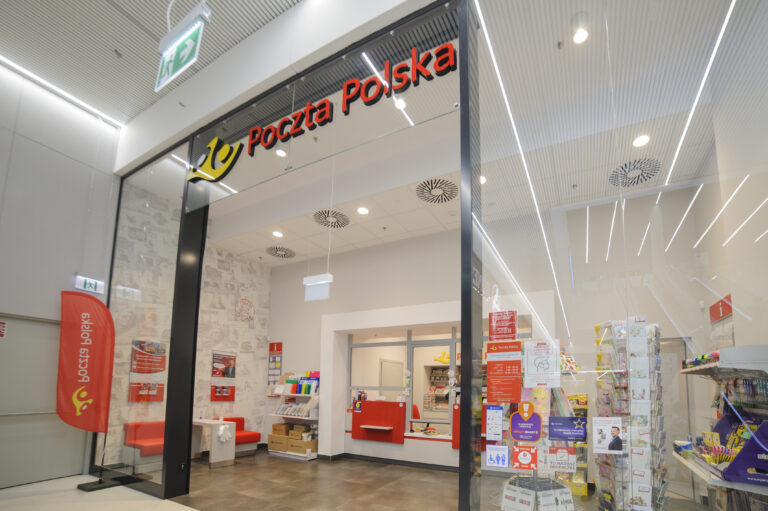Marek Różycki explores the key elements needed to help Poland’s national postal operator thrive in an ever-changing and competitive market
Postal operators around the world are facing unprecedented challenges in the digital age, where traditional mail services are declining and electronic communication is on the rise. Poczta Polska is no exception; with mounting losses and lack of direction, we cannot help but see an increasing sense of desperation among employees and other key stakeholders. However, with the right leadership, a clear strategy, political support, strategic partnerships and a re-evaluation of the universal service obligation (USO), it is possible to save this company, and indeed position it for long-term success.
Leadership with charisma and relevant experience
One aspect that is key to rescuing Poczta Polska, and for that matter several other struggling postal operators, is the need for effective leadership. The leader must possess charisma to inspire the workforce and stakeholders, instilling a sense of purpose and confidence in the organization’s ability to adapt. Equally important is relevant experience, especially in navigating the complexities of the postal and CEP industries. A leader with a deep understanding of the challenges and opportunities, as well as the ability to choose and inspire the right team, can make informed decisions critical to the postal operator’s revitalization.
Clear strategy
A well-defined strategy is paramount for any organization in distress. This strategy should encompass a clear vision for the future, incorporating technological advancements, diversification of services, sustainable practices and an ability to develop the right strategic partnerships. A strategic roadmap will ensure Poczta Polska can adapt to changing market dynamics, remain competitive and thrive in the digital era.
Political support without interference
Political support is essential for the survival and transformation of any state-owned postal operator. However, it is crucial that this support does not translate into unwarranted interference in day-to-day operations. Governments can enact favorable policies, and advocate for the importance of a robust postal infrastructure. Striking the right balance between support and non-interference is vital to enable the postal operator to operate efficiently and adapt to market demands.
Openness to partnerships, especially in core areas
To strengthen their position, postal operators must be open to strategic partnerships, particularly in core areas such as out-of-home delivery. Collaborating with e-commerce platforms, large retail networks or other delivery services can enhance the postal operator’s capabilities and expand its capabilities by leveraging third-party assets and pooling resources. These partnerships should be mutually beneficial, contributing increased volume and improved customer satisfaction.
Harnessing the potential of the posties
Looking at various communications in Polish social media, there is still a unique opportunity to leverage the power of their postal workers, or ‘posties’, to not only enhance their service offerings but also to strengthen community bonds. These often dedicated and caring individuals, sometimes regarded as the ‘familiar faces’ of the postal system, can play a pivotal role in expanding the scope of traditional mail delivery. Especially in rural areas, their close community ties can be used to gain data on local infrastructure issues. Furthermore, their regular presence at the doorstep makes them ideal for offering additional services such as elderly check-ins or simple market research. By reimagining the role of the postie, Poczta Polska can create a more dynamic, community-focused model that goes beyond mail delivery, fostering stronger community connections and providing invaluable services that transcend the USO.
“This key role of the postal worker is manifested especially in delivering parcels, letters, advertising materials, press, postal orders, pensions and other benefits to citizens – this is very important for people living in rural villages and small towns,” Daniel Witowski, press spokesman at Poczta Polska, told me.
Review of universal service obligation
Poczta Polska acts as a designated operator, i.e. an operator obliged to provide universal postal services, which are provided in a uniform manner and at affordable prices for the common good. Poczta Polska is obliged to provide services throughout the country five days a week, consisting of receiving, sorting, transporting and delivering letter items, including registered items and those with a declared value up to 2kg; postal parcels, including those with a declared value, up to 10kg (parcels sent from abroad may weigh up to 20kg); and parcels for the blind up to 7kg.
Additionally, it must enable the sender, at their request, to obtain a document confirming receipt of the registered shipment.
The universal service obligation (USO) is a cornerstone of postal services, ensuring that essential mail services are accessible to all. However, it is crucial to review and adapt the USO to the changing landscape. This includes a thorough examination of the role of electronic messaging, less frequent deliveries of non-priority mail, and exploring opportunities for more efficient out-of-home delivery options. An updated USO will enable Poczta Polska to align its services with modern communication trends and consumer expectations.
Witowski said, “If Poczta Polska is to compete with the private sector, it will require fast action to either fully compensate for the cost of maintaining the USO and/or openness from the regulator to gradually modify it so as to make it less financially and operationally onerous for the post.”
Conclusion
Reviving Poczta Polska demands a comprehensive approach, encompassing strong and charismatic leadership, clear strategy, political support, transformative partnerships and harnessing the power of the postie, coupled with a re-evaluation of the USO. Implementing such a plan will not be without challenges, but it holds the promise of a bright and sustainable future for Poczta Polska, benefiting its employees, customers and the broader community.


